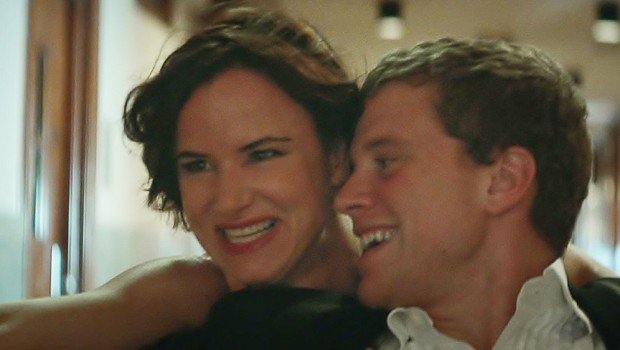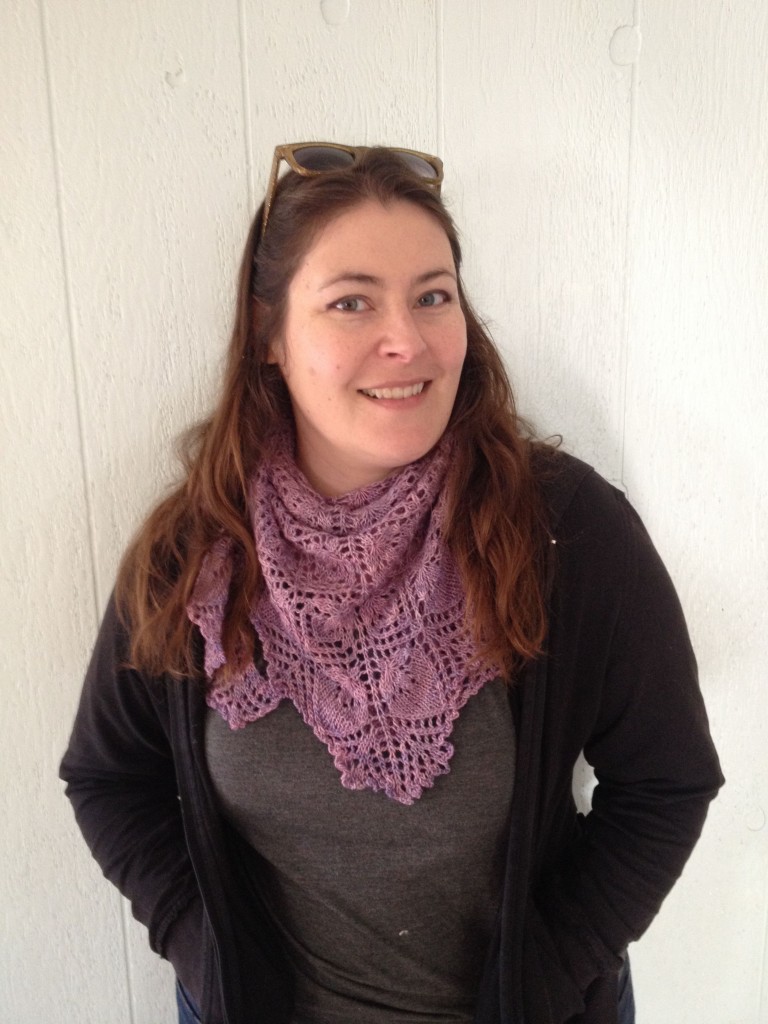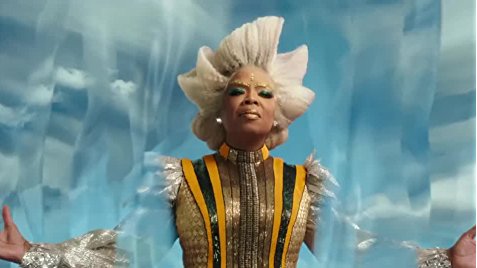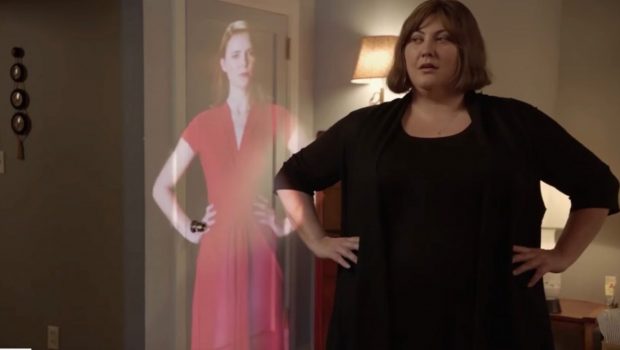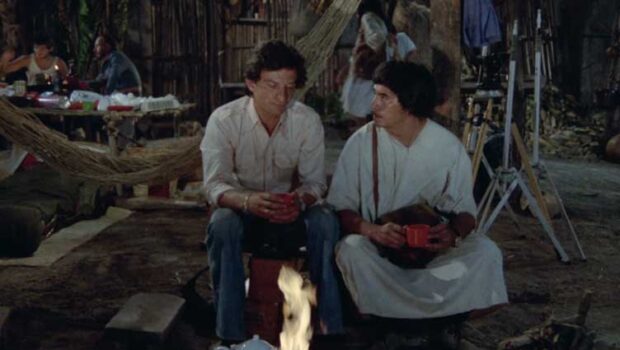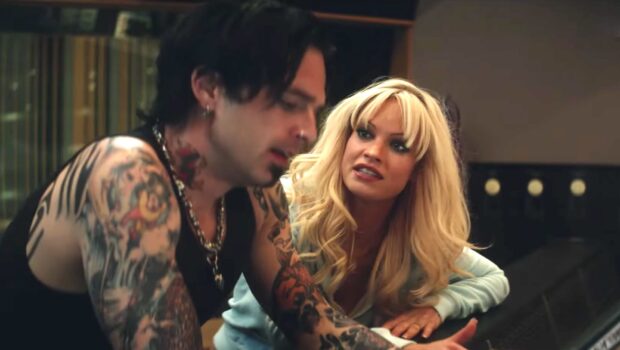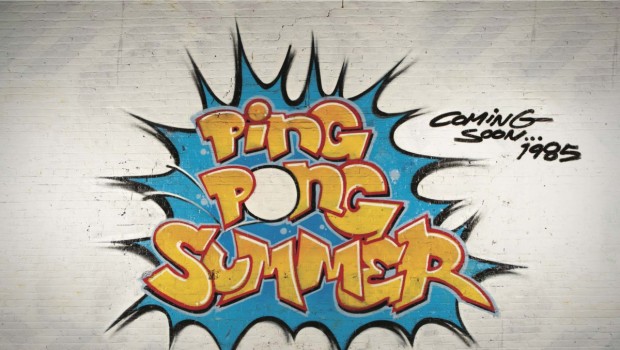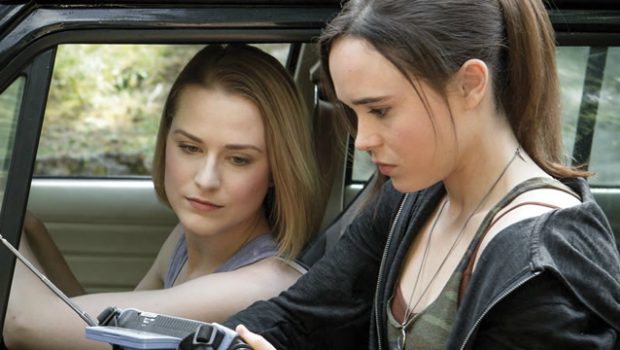Kelly, Cal & Amy Lowe Starbin
Amy Lowe Starbin
Explosions and zombie movies are fun to watch from time to time, but sometimes it’s nice to connect with characters and see our lives reflected onto the screen. This is the kind of art that improves our lives, the type of art that fulfills its purpose in allowing us to silently slide into someone else’s skin and live what we cannot live. Kelly & Cal (2014) is one of those movies for me. It’s a unique exploration of the confilcting feelings between some sort of self-responsibility and complete hedonism. I had the chance to speak with Kelly & Cal’s writer, Amy Lowe Starbin, and go a bit deeper into the complexities of her characters, motherhood and life overall.
Is this your first film? What did it feel like to watch this project grow onto the screen? The process of making a movie seems to be a very palpable evolution of one’s ideas onto a kind of pseudo reality. What was your experience with this process?
Yes, this was my first produced screenplay. I was lucky to cross paths with director Jen McGowan, who was looking to make the leap from short films to features (believe it or not, this movie marks her feature debut – and she won the Gamechanger Award at SXSW for it). She was instrumental in helping me develop it from the first draft into production, and was an incredibly generous and inclusive director. I trusted her completely with it – and of course once Juliette Lewis and Jonny Weston were on board (not to mention the stellar supporting cast), I knew we were in good hands. The film shot on location in Long Island, and I was able to visit for a week – a week that happened to be focused largely on shooting in Cal’s “clubhouse” (actually a detached garage on the same property that stood in as Cal’s house). It was amazing to step onto that set, with all the traffic signs and the ratty couch and the thousand little extra details they had layered in. It was pretty much exactly as I had imagined it. Then, watching the actors bring those scenes to life, those moments of Kelly and Cal joking and jabbing at each other and falling into that deep connection – even on the set you could see their chemistry was phenomenal. It was really exciting to watch.
And what motivated you to write this story?
Jen and I are both USC grads that went at different times. They had a brief – I don’t think they have the program anymore, but they had something called First Team. It’s almost like speed dating for writers and directors. It makes a lot of sense. Writers have a lot of material and they don’t know how to get it out there. Directors need to have material to make that leap. I had about 60 pages of it written and I got right up to the point where I thought, wait a second, Cal may have other issues. That’s when I had stopped, and that’s when I met Jen. That’s the genesis of how the story came about.
At that time my kid was a year or two old. I was out of the infancy stage and had some perspective on that intense time period. He was just a really difficult baby in some ways! We tell him this story all the time: when he was still in the hospital, mostly he roomed with me, but when he was in the nursery, my husband would visit him. The first time he did that, the nurse asked, “Which is your baby?” He pointed him out and she was like, “Oh you have the screamer!” And we thought, if the veteran maternity nurse said he was a screamer, we are in trouble. I was not the kind of person that daydreamed about having a baby my whole childhood. I didn’t see myself as a wife and mother until I met my husband. For me, even though I was excited about having a kid, there was an adjustment period where I thought, “Wow, this is a lot of work.” I remember a moment when he was about 6 weeks old, he had been screaming non-stop. I took him for a walk. I was literally in my pajamas; I didn’t even care at that point. There was a high school around the corner, and while I was wheeling my son I saw these high school kids and thought, when you’re in high school, you think the world is going to end, you think the world is on your shoulders. You have no idea how much easier your life actually is. You have no idea the power and freedom you have then. That might have been the germ of the idea.
I hear you saying this and it reminds me of this article that I read in 2008 about the city of Nebraska allowing parents to drop off their unwanted children at a hospital with no questions asked (Safe Haven Law). Kids could be up to 19 years old. I think the results of that completely destroyed the idea that all women wanted to be mothers.
I think there are a lot of sacred cows around motherhood – and many of them are messed with in this movie. We seem to be having a cultural moment where there are two prevailing images of motherhood: 1) the completely self-effacing mom who exists to shuttle her kids around and make organic artisanal cupcakes for their birthdays and 2) the reckless Terrible Mom / MILF who is constantly cursing and smoking and drinking and doesn’t give a rat’s ass about her kids. For most women the truth lies in the complicated middle, and trying to negotiate that balance. Kelly is probably not someone who always dreamed about being a mom, and she’s having some doubts about her skills and whether her kid even likes her. So if she’s not a “good mom” but she’s no longer a riot grrrl, what is she? I think many women relate to the struggle of defining yourself BOTH as a mom and in other ways.
That’s also why some people are freaked out by Kelly. Even Juliette said at one point she was a little scared of this character because anything less than complete devotion is considered selfish in a mom right now.
Did you happen to have an idea of how you wanted to represent women while you were writing Kelly?
When I set out to write it, I worked really intuitively. I’m sure you get this all the time from writers, “I just feel it.” But in later drafts I was definitely very conscious of Bev and Julie in particular representing another perspective of what it means to be a woman. They are slightly more traditional and out to be the antagonist at first. But then you come around, you see that it’s not that uncommon. There are different ways of defining what it means to be a woman. Cybil comes across as if she’s judging Kelly, but she’s not. She’s trying to connect to her using the wrong tools. As far as Kelly, it probably started as an examination of my own difficulties in parenting. It is almost escapist, because I obviously did not meet a teenage boy in my neighborhood. I was never cool enough to be in a riot girl band. I wanted to create a character that people would connect with enough that they’d be willing to go, “Oh! I wouldn’t do that!” but they could understand why she did it.
What about Cal (Jonny Weston)? I can’t help but wonder if there is any metaphor to be found in his being handicapped. Did you ever intend for him to represent any specific quality or characteristic within the story?
I think, again, I worked intuitively. However, you could definitely argue there’s metaphoric value to his physical state, but largely I was thinking of it in terms of how it would offer an unexpected connection to Kelly in that 1) he and Kelly are both inhabiting bodies which have radically changed, and which they are adapting to, and 2) they are both in new roles and can no longer relate to their old friends. I also just really enjoyed playing with the portrayal of sexuality in a disabled teenager – I think portrayals are changing gradually, but for a long time if you put a kid in a wheelchair he was immediately some kind of beatific martyr. Cal is fully aware of that and completely manipulates it to get close to her.
As a writer you have these thoughts that are tucked away in your back pocket until they are useful to you. I remember going to this really groovy Unitarian church. I didn’t know anybody. One of the things they had said in the program is that there was this family whose son had just gone through an accident and we should pray for him. I went to the coffee hour afterwards and he was this really attractive teenage boy in a wheelchair. We talked for a few minutes, and then I left to my car. I was left feeling a bit twitterpated and weird. I thought, “Let’s look at this feeling, what’s happening? Are you weirded out because he’s 17 or because he’s in a wheelchair? Or both?” I thought it was an interesting feeling for the back pocket for later.
It’s a great concept between them. Cal is completely aware of how he can exploit that. For me, that was the B plot. The A plot was focused on how we look at motherhood and here is how it’s not what you thought. In the B plot, you want to feel sorry for the kid in the wheelchair, but really he’s going to mess with you at any opportunity.
Well, it was very nice talking to you Amy, thanks for speaking with us.
Thank you so much for your time.
Follow Kelly & Cal on Twitter.
Posted: March 28, 2014 at 9:44 pm


